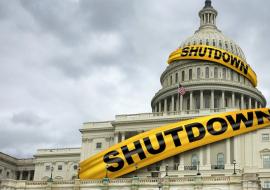Opposition to a CO-UA Merger Keeps Growing in U.S. Congress
While executives at United and Continental maintain that their proposed merger was designed to win U.S. government approval, opposition and skepticism about the deal are mounting on Capitol Hill.
The most vocal opponent of the merger has been Rep. James Oberstar (D-Minn.), chairman of the House Transportation and Infrastructure Committee. That had been expected, given his long-held opposition to any airline merger.
But other key congressmen are also starting to question the merger, which could become a convenient populist target in a tight election year.
John Conyers Jr. (D-Mich.), the Judiciary Committee chairman, and Henry Johnson (D-Ga.), chairman of the Judiciary Subcommittee on Courts and Competition Policy, last week released a joint statement voicing serious concerns about the number of jobs that could be lost through the merger and demanding more information about the deal’s impact on the airlines’ respective route networks, gates and workforces.
The statement berated the airlines for failing to provide information the lawmakers had requested about the merger. Many of their questions appeared to arise from labor union concern.
“The companies refuse to provide adequate assurances that they will protect the benefits of all union employees if and when the merger occurs and the workforces are combined,” Conyers and Johnson said.
Specifically, Conyers and Johnson said they asked whether the merged airlines would guarantee that they “would offer employees the higher of the two companies’ salary structures and benefits.”
The lawmakers made it clear that they expected more candor and details from airline executives at a committee hearing scheduled for June 16. On the Senate side, the Antitrust, Competition Policy and Consumer Rights Subcommittee of the Judiciary Committee held a hearing last week to examine the impact of the proposed merger on consumers.
Meanwhile, the Senate Commerce, Science and Transportation Committee had scheduled a hearing for May 27 to examine the implications of mergers and consolidations and the financial state of the airline industry. However, because of voting schedule conflicts, that hearing had to be postponed at the last minute.
It’s difficult to know what impact, if any, congressional opposition might have on the merger’s chances of being approved. While lawmakers have no official sway over the Justice Department’s decision to sanction or disapprove of the merger, industry analysts said that as key Democrats dealing with a Democratic administration, Oberstar, Conyers and Johnson wield sufficient political clout to influence Justice’s thinking.














